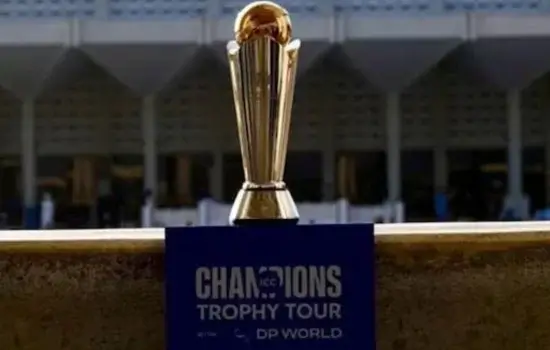The 2025 ICC Champions Trophy, slated to be hosted by Pakistan, has become a focal point of contention between the Board of Control for Cricket in India (BCCI) and the Pakistan Cricket Board (PCB). India’s reluctance to play matches in Pakistan, citing security concerns, has led to discussions about a ‘hybrid model’—a solution that the PCB has firmly rejected. This impasse not only threatens the tournament’s smooth execution but also underscores the enduring complexities in India-Pakistan cricket relations.
Background: A History of Strained Cricketing Ties
Cricketing engagements between India and Pakistan have been sporadic, primarily due to political tensions and security apprehensions. The two nations have not engaged in bilateral series since 2012-13, limiting their encounters to multinational tournaments. India last toured Pakistan in 2008, and subsequent planned series have been canceled or relocated due to diplomatic strains.
The Hybrid Model Proposal: A Contested Solution
In response to India’s security concerns, the BCCI proposed a hybrid model for the Champions Trophy, wherein India’s matches would be held at neutral venues outside Pakistan. This approach mirrors the arrangement adopted during the 2023 Asia Cup, where India’s matches were played in Sri Lanka while Pakistan retained hosting rights. However, the PCB has rejected this model for the Champions Trophy, emphasizing its commitment to hosting the entire tournament within Pakistan’s borders.
PCB’s Stance: A Firm Rejection
The PCB’s rejection of the hybrid model is rooted in several considerations:
- Sovereignty and Hosting Rights: The PCB asserts that as the designated host, it holds the right to stage all matches within Pakistan, viewing the hybrid model as an infringement on its sovereignty.
- Security Assurances: Pakistan has successfully hosted international teams in recent years, including Australia, England, and New Zealand, showcasing its capability to ensure players’ safety. The PCB argues that India’s security concerns are unfounded and politically motivated.
- Precedent Concerns: Accepting a hybrid model could set a precedent, potentially undermining Pakistan’s position in future hosting opportunities and leading to similar demands from other nations.
BCCI’s Position: Security and Political Considerations
The BCCI’s insistence on not playing in Pakistan stems from:
- Government Directives: The Indian government has consistently advised against sporting engagements in Pakistan due to security concerns and diplomatic tensions.
- Player Safety: Ensuring the safety of players and staff is paramount, and the BCCI remains cautious about exposing them to potential risks.
- Public Sentiment: Given the sensitive nature of India-Pakistan relations, the BCCI is mindful of domestic public opinion, which often opposes sporting ties with Pakistan amid political conflicts.
ICC’s Role: Mediator in a Complex Dispute

The International Cricket Council (ICC) finds itself in a challenging position, tasked with balancing the interests of both member boards while ensuring the tournament’s success. The ICC’s options include:
- Facilitating Dialogue: Encouraging direct negotiations between the BCCI and PCB to reach a mutually acceptable solution.
- Assessing Security: Conducting independent security assessments to address concerns and provide assurances to all parties involved.
- Considering Relocation: As a last resort, contemplating the relocation of the tournament to a neutral venue, though this would be a contentious and complex decision.
Potential Implications: Beyond the Champions Trophy
The outcome of this standoff could have far-reaching consequences:
- Bilateral Relations: A failure to resolve the issue amicably may further strain cricketing ties, diminishing prospects for future bilateral series.
- Global Cricket Dynamics: The ICC’s handling of the situation will set a precedent for addressing similar disputes, impacting governance and member relations.
- Fan Engagement: Cricket enthusiasts worldwide, who eagerly anticipate India-Pakistan clashes, may face disappointment, affecting the sport’s global appeal and commercial interests.
Conclusion
The India-Pakistan impasse over the 2025 Champions Trophy underscores the intricate interplay between sports and politics. Navigating this complex landscape requires diplomatic finesse, mutual respect, and a commitment to the spirit of cricket. As the ICC, BCCI, and PCB deliberate on the path forward, the global cricketing community watches closely, hopeful for a resolution that upholds the integrity of the game and fosters regional camaraderie.